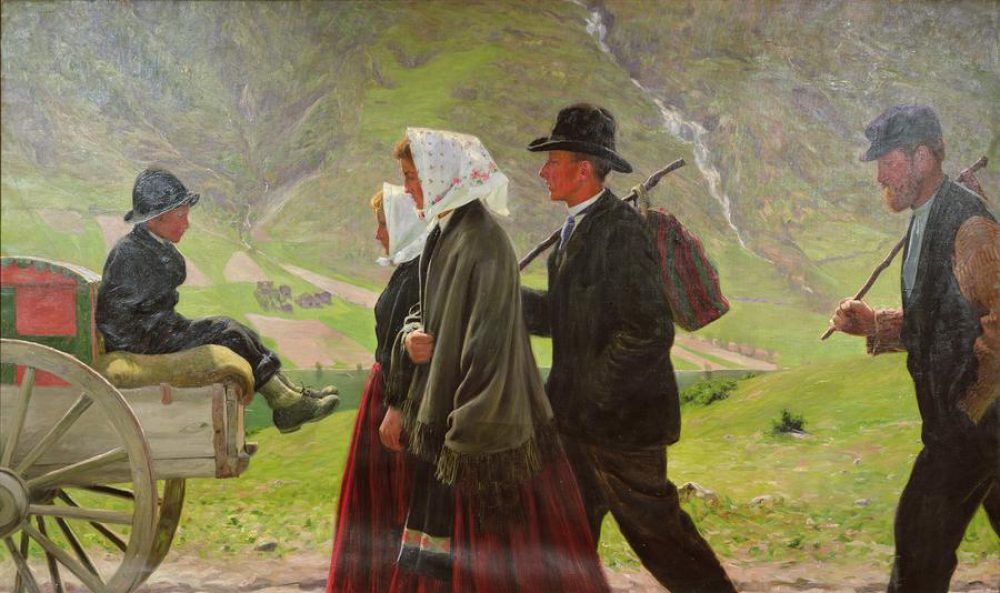Wednesday 24 January 2018: A Presentation by Alley Jordan, University of Edinburgh.
In 1771, the twenty-eight-year-old Thomas Jefferson drew up plans for a classical grotto on his Virginian estate. The scheme embraced a physical and an imaginary world, profoundly influenced by the literature of the ancient world. Sadly for posterity, the ideas were never realised-financial constraints saw to that – but his original plans and additional notes of 1787 provide a tantalising glimpse into Jefferson’s neo-classical vision. In a fascinating paper, Alley Jordan, a second year PhD student at the University of Edinburgh, considered Jefferson’s grotto in its eighteenth-century context: what was its purpose? what was nature of the Grecian ideal which had inspired it? And how does the physical creation of a neo-classical grotto relate to notions of Enlightenment?
The grotto, Alley argued, served many purposes but ultimately it was a place where Jefferson could materialise or re-create his own imagination. Jefferson was steeped in a classical tradition, his grotto a conscious attempt to bring classical antiquity to life. In ancient Greece, the grotto had represented a place of escape. Situated in the mountains, it was a world away from the toils of everyday life. Its life-healing waters were associated with the god Asclepius and connected with the rivers of the Underworld. In early modern times, the grotto came to be associated with melancholy, but Jefferson wanted to recreate the classical idea. In his mind’s eye, he visualised a world removed from the day to day burdens of running a plantation where he could act out his own Theocritan idyll. He believed in the healing powers of spring water and, as the ancients, imagined the presence of Asclepius. Jefferson’s grotto, however, would be both healing and ornamental. He planned a tiered water fall which would make use of the natural waterfalls of Virginia and a sacred temple, similar perhaps to the Queen’s Temple at Stowe. Music and musical instrument would be present in the temple, a conscious echo of a world reflected by the poetry of Theocritus and Virgil. As Alley argued, the grotto was an artistic work which enabled Jefferson to imagine himself in an artistic dreamland.
T he plan for Jefferson’s grotto, consistent with the classical notion of a locus amoenus, comprised a physical and mystical experience. Each part of the cave would elicit a different emotional response; a visit represented a journey from dark to light and from cold to hot, whilst the presence of stone provided an important connection with geology and geography. As Alley argued, the grotto was a place of transformation and enlightenment in the 18th century.
he plan for Jefferson’s grotto, consistent with the classical notion of a locus amoenus, comprised a physical and mystical experience. Each part of the cave would elicit a different emotional response; a visit represented a journey from dark to light and from cold to hot, whilst the presence of stone provided an important connection with geology and geography. As Alley argued, the grotto was a place of transformation and enlightenment in the 18th century.
Alley’s paper generated animated discussion from an appreciative audience. The Graduate Workshop wishes Alley well with her continuing research.
Our next Graduate Workshop takes place on Wednesday 7 February 2018 when our speaker will be Gintare Venzlauskaite from the University of Glasgow. Her paper is entitled:
From Post-War West to Post-soviet east: Manifestations of Displacement, Collective Memory, and Lithuanian Diasporic Experience Revisited
It considers WWII displacements from Lithuania. To what extent did they have an effect on the country’s memory landscape? By providing a retrospective view of discursive patterns regarding population losses and their role in national identity construction, Gintare’s study travels across the US and Russia where a significant part of these losses has been transformed into diasporic communities and their networks.
 The workshop will take place at 1 pm in G 16 in the William Robertson Wing of the Old Medical School in Teviot Place.
The workshop will take place at 1 pm in G 16 in the William Robertson Wing of the Old Medical School in Teviot Place.
Everyone is welcome to attend!


 employment of the English language”. Moreover, a dignified American dialect was comparable to the Scots of Robert Burns whose writing had been readily available in the young United States of American from the 1790s. The poetry of Burns, Sean argued, fostered a sense of nostalgia, in emigrant Scots.
employment of the English language”. Moreover, a dignified American dialect was comparable to the Scots of Robert Burns whose writing had been readily available in the young United States of American from the 1790s. The poetry of Burns, Sean argued, fostered a sense of nostalgia, in emigrant Scots.